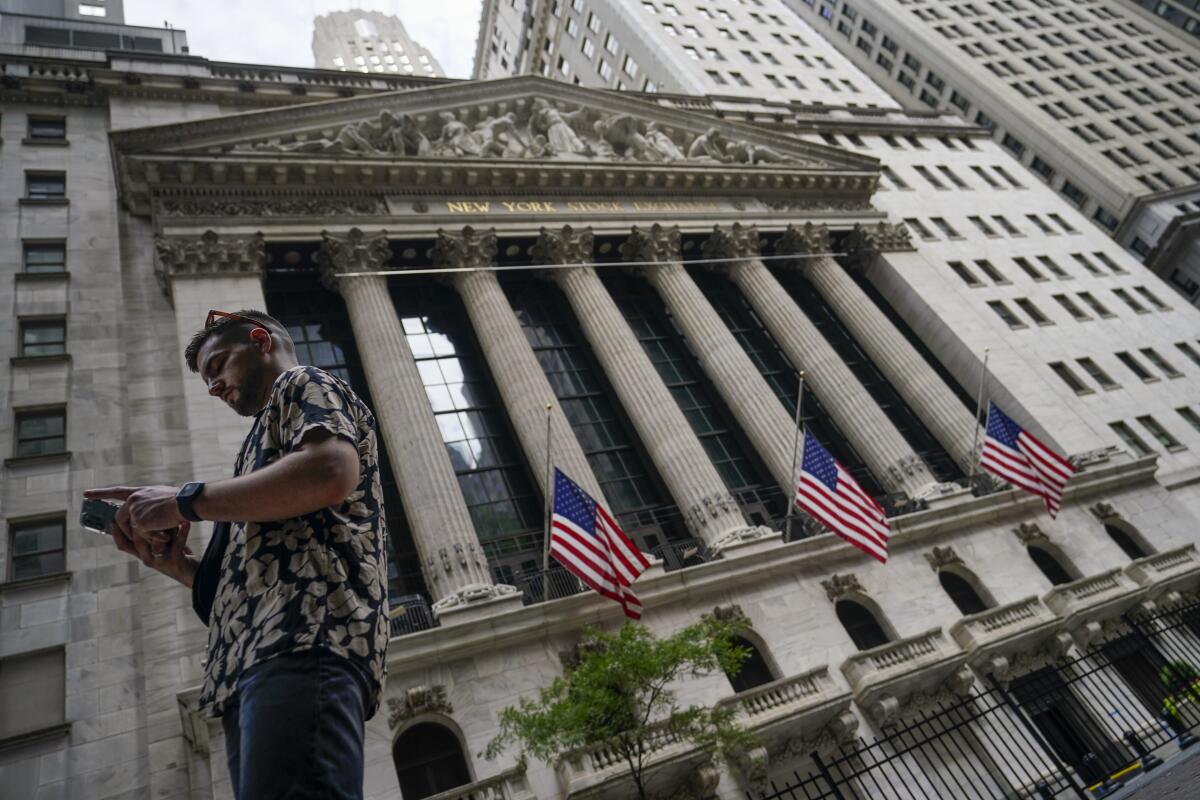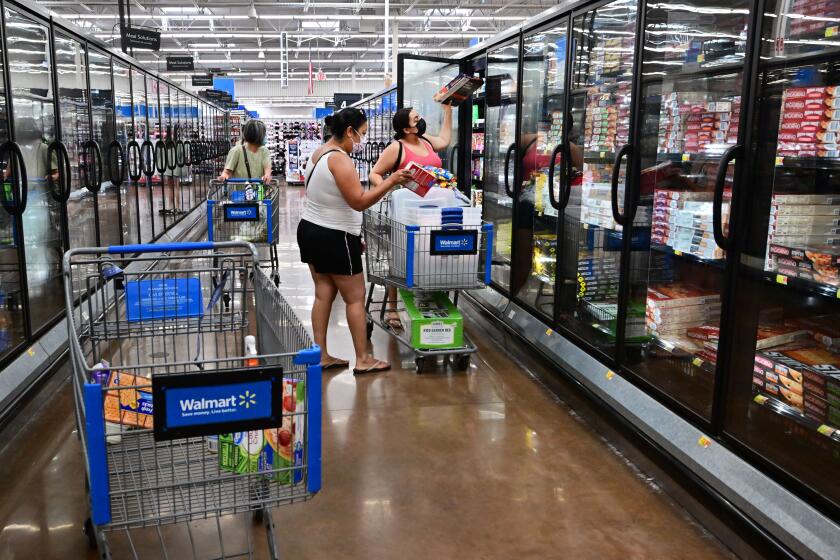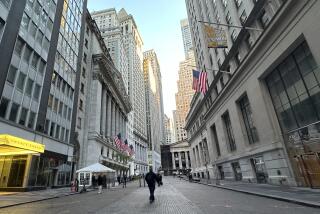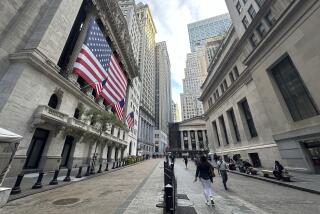Wall Street closes higher after GDP report shows economy shrank in 2nd quarter

- Share via
Stocks closed broadly higher again Thursday as investors grew more optimistic that a slowing U.S. economy means the Federal Reserve can temper its aggressive interest rate increases aimed at taming inflation.
The Standard & Poor’s 500 rose 1.2% as more than 80% of the stocks in the benchmark index closed higher. The Dow Jones industrial average gained 1%, and the Nasdaq composite added 1.1%. Smaller company stocks edged out the broader market, lifting the Russell 2000 by 1.3%.
The Commerce Department reported that the U.S. gross domestic product, the broadest gauge of the economy, contracted at a 0.9% annual pace in the April-through-June quarter, after a 1.6% annual drop from January through March. Consecutive quarters of falling GDP are an informal, though not definitive, indicator of a recession.
The GDP report signaled weakness across the economy. Consumer spending slowed as Americans bought fewer goods. Business investment fell. Inventories tumbled as businesses slowed their restocking of shelves, shaving 2 percentage points from GDP.
The Federal Reserve has made slowing the U.S. economy to tame the highest inflation in 40 years its goal by raising interest rates, most recently on Wednesday. The latest GDP report, along with other recent weak economic data, could be giving some investors confidence that the central bank will be able to ease up on the size of any further rate increases in the months to come, analysts said.
“Sometimes bad news is good news,” said Megan Horneman, chief investment officer at Verdence Capital Advisors. “The Fed may not have to be as aggressive as once thought. That’s what investors are looking at.”
The U.S. economy shrank from April through June for a second straight quarter, contracting at a 0.9% annual pace and raising fears of a recession.
In a research note Thursday, Jonathan Golub, chief U.S. equity strategist at Credit Suisse Securities, said, “Whether or not we are in a recession will be debated by academics in the months ahead. However, today’s report unequivocally reflects a substantial weakening in economic activity, and raises the likelihood of a dovish pivot by the Fed.”
Traders now see a 74% chance that the Fed will raise its key rate by half a percentage point at its next policy meeting in September, and only a 26% chance of another 0.75-point increase, according to CME Group.
The central bank raised its key short-term interest rate by 0.75 percentage points Wednesday, lifting it to the highest level since 2018. The move sparked a broad market rally led by technology stocks that helped give the Nasdaq its biggest gain in more than two years. The major indexes are now all on pace for a weekly gain, extending Wall Street’s strong July rally.
On Thursday, the S&P 500 rose 48.82 points to 4,072.43, the Dow added 332.04 points to close at 32,529.63, the Nasdaq gained 130.17 points to 12,162.59 and the Russell 2000 climbed 24.69 points to 1,873.03.
Technology stocks and retailers, restaurant chains and other companies that rely on direct consumer spending helped lift the S&P 500 on Thursday. Microsoft rose 2.9%, Target gained 3.1% and McDonald’s added 1.8%.
Communication services stocks were the only laggards. Meta Platforms fell 5.2% after the social media giant said its revenue fell last quarter for the first time ever, dragged down by a drop in ad spending.
In a busy week of corporate earnings reports, investors have focused on what companies are saying about inflation and the effects rising interest rates are having on their business and customers.
Markets were spooked Monday after retail giant Walmart warned that its profits are being hurt by rising prices for food and gas, which are forcing shoppers to cut back on more profitable discretionary items such as clothing.
Stanley Black & Decker slumped 16.1% on Thursday after the tool maker’s second-quarter results fell short of Wall Street’s estimates. The company noted that demand significantly slowed in May and June.
Oshkosh fell 6.2% after the Wisconsin maker of postal trucks and military vehicles reported weaker-than-expected quarterly results and lowered its 2022 profit guidance, citing lingering supply-chain disruptions and inflation.
Apple’s profit and revenue fell in its April-through-June quarter, but the results still beat analysts’ forecasts. The iPhone maker rose 0.4%, but added 3.9% in after-hours trading following the release of its earnings report.
Amazon jumped more than 12% in after-hours trading. It reported its second-consecutive quarterly loss, but its revenue topped Wall Street’s expectations. The stock closed 1.1% higher during regular trading.
Meanwhile, Spirit Airlines rose 5.6% after JetBlue said it agreed to buy the budget airline for $3.8 billion to create the nation’s fifth-largest airline. The agreement, which still requires regulator and shareholder approval, comes a day after Spirit’s attempt to merge with Frontier Airlines fell apart. Frontier Airlines vaulted 20.5%.
Bond yields were broadly lower. The two-year Treasury yield, which tends to move with expectations for the Fed, fell to 2.87% from 2.98% late Wednesday. The 10-year yield, which influences mortgage rates, fell to 2.68% from 2.74%.
More to Read
Sign up for Essential California
The most important California stories and recommendations in your inbox every morning.
You may occasionally receive promotional content from the Los Angeles Times.











